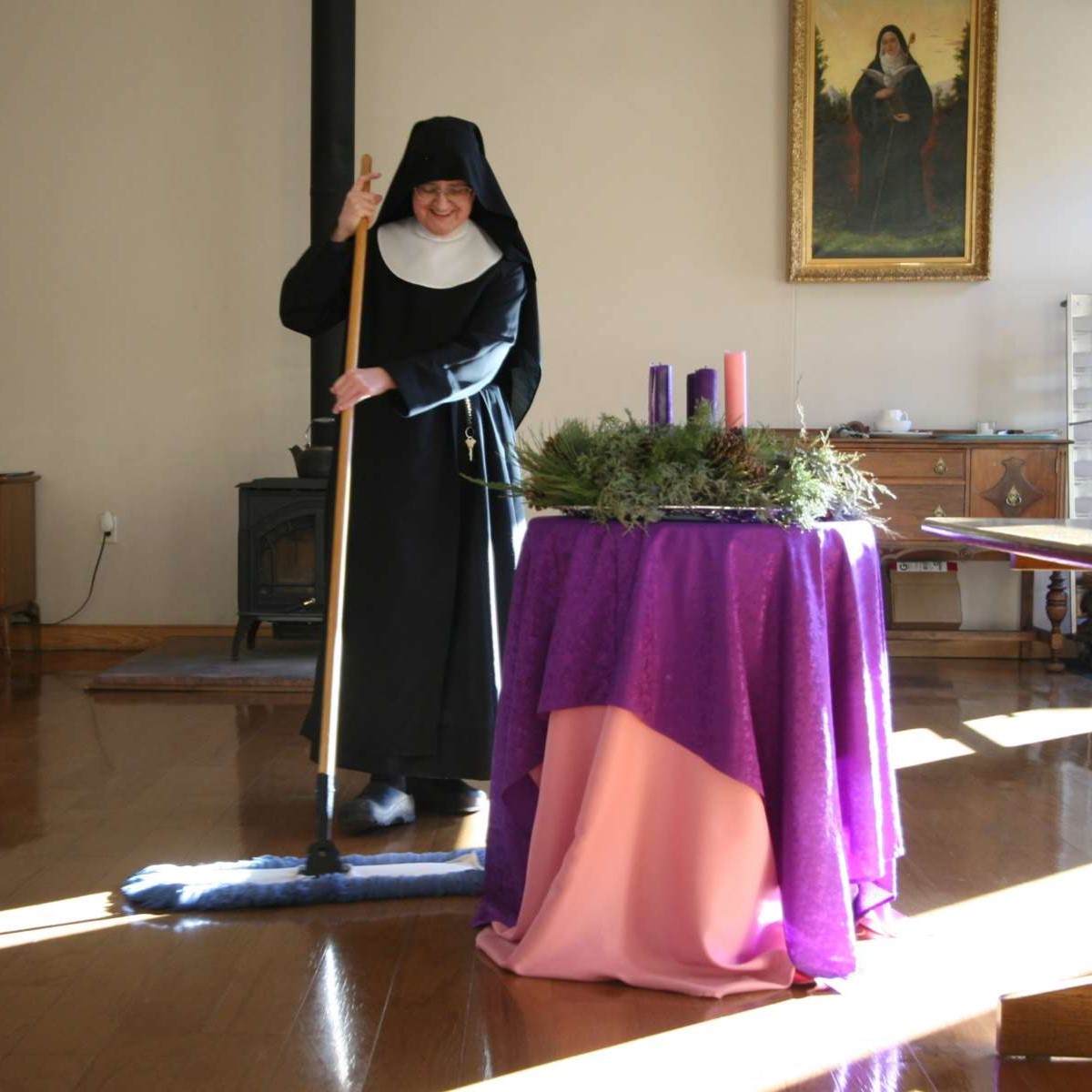A reflection by our Abbess, Mother Maria-Michael Newe, OSB
I love reading the great prophets during Advent. In Isaiah, we hear the story of Hezekiah and how his time to die has come, so he turns and faces the wall and prays. It reminds me of children when they are in trouble, how they go stand in the corner, and I’m sure in one way their hearts are praying, too, “Oh God let this be over!” But upon hearing Hezekiah’s prayer, God adds fifteen more years to his life. The part that stands out to me in this reading, though, is when God says to him, “Put your house in order, for you are about to die” (Isaiah 38:1).
Advent is about putting your house in order, which is why the monastic life is considered a perpetual Advent – we are continually preparing ourselves to see Christ, awaiting His coming with eager expectation. All the more so during this season of Advent. It’s about living a life that has everything directed toward heaven. Focus on the things which will last for all eternity. Don’t waste your time thinking about things that don’t really matter.

When preparing our hearts for Christmas this year, and pondering what gift we are to bring the Lord, let us remember that He says in scripture, “I desire mercy, not sacrifice” (Matt. 9:13). Mercy is to go beyond ourselves, to go beyond our judgments, to give room for what we don’t know. You may have heard the saying, “Chaste as angels, proud as devils.” Don’t justify yourself by saying that you fasted all day and so you’re fine, and then go and judge everyone all the way down the hall. Then what have you really done? Nothing, you’re just hungry and it hasn’t helped you a bit. No, we should stand humbly before God. We need to acknowledge our faults and sins. We can’t just point fingers and say to God, “Well look at them!”, because God does, and He is looking at you, too. If you choose to be merciful you will receive mercy (cf. Luke 6:37).
Remember the power of blessing as one of the greatest gifts. Sister Angelika, when she was working outside, would see a plane fly over and automatically pray for all the people in it, and ask for God to bless them. Now that’s a big heart. That’s how we should choose to live – thinking for the good of others. Pray for people. Do your part to change yourself. Others will follow suit, and you’ll notice it. It’s the nicest thing to have someone say, “Boy, you’re different” in a good way. In a house where we live so close in community, it’s far more powerful to live mercifully than to fast all day. If you can do both, well blessed are you. But mercy is more powerful.
Arise, all ye nobles and peasants; Mary invites all, rich and poor, just and sinners, to enter the cave of Bethlehem, to adore and to kiss the feet of her new-born Son. Go in, then, all ye devout souls; go and see the Creator of heaven and earth on a little hay, under the form of a little Infant; but so beautiful that he sheds all around rays of light. Now that he is born and is lying on the straw, the cave is no longer horrible, but is become a paradise. Let us enter; let us not be afraid.
From “The Discourse for Christmas Night,” by St. Alphonsus Liguori





